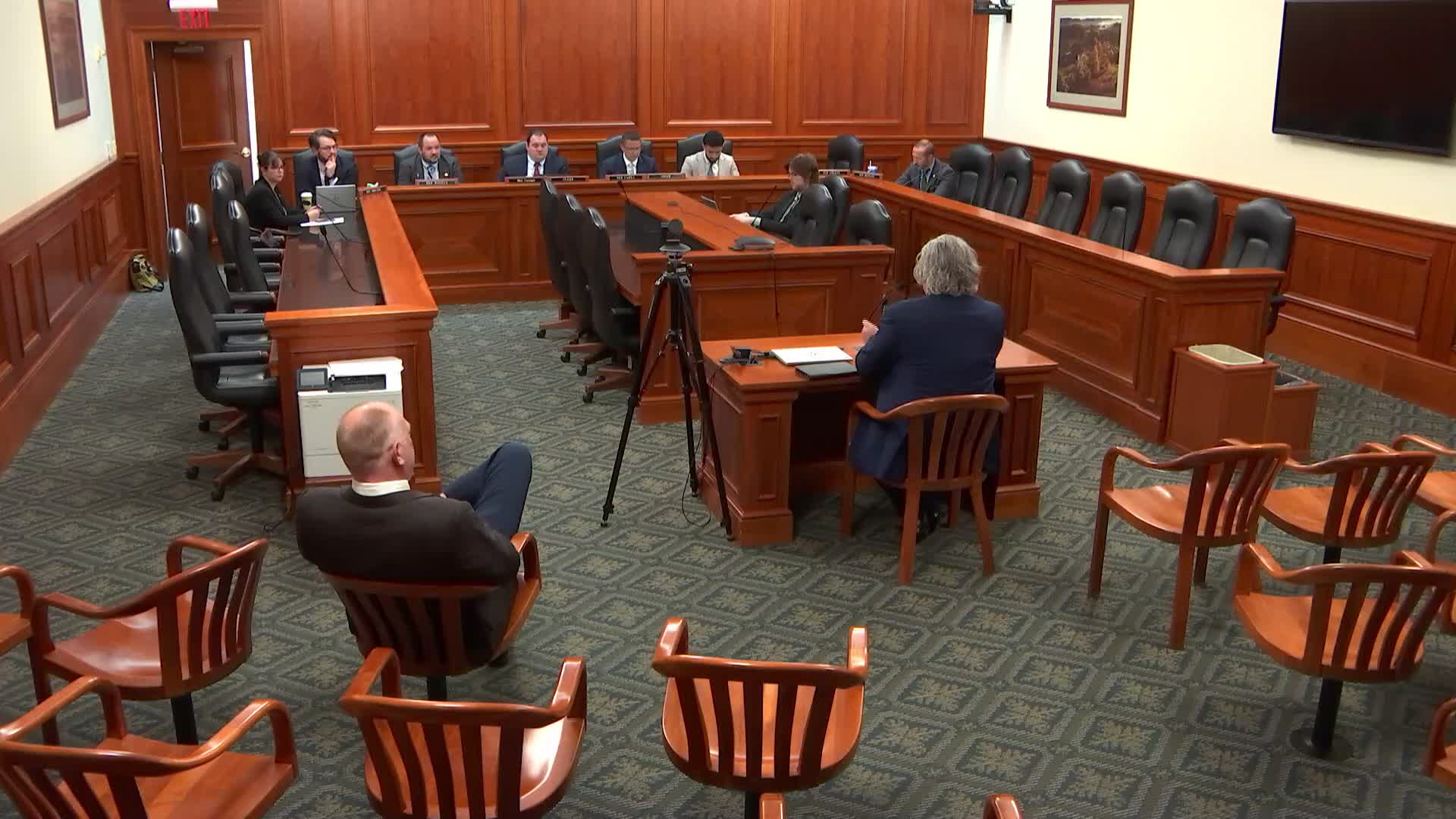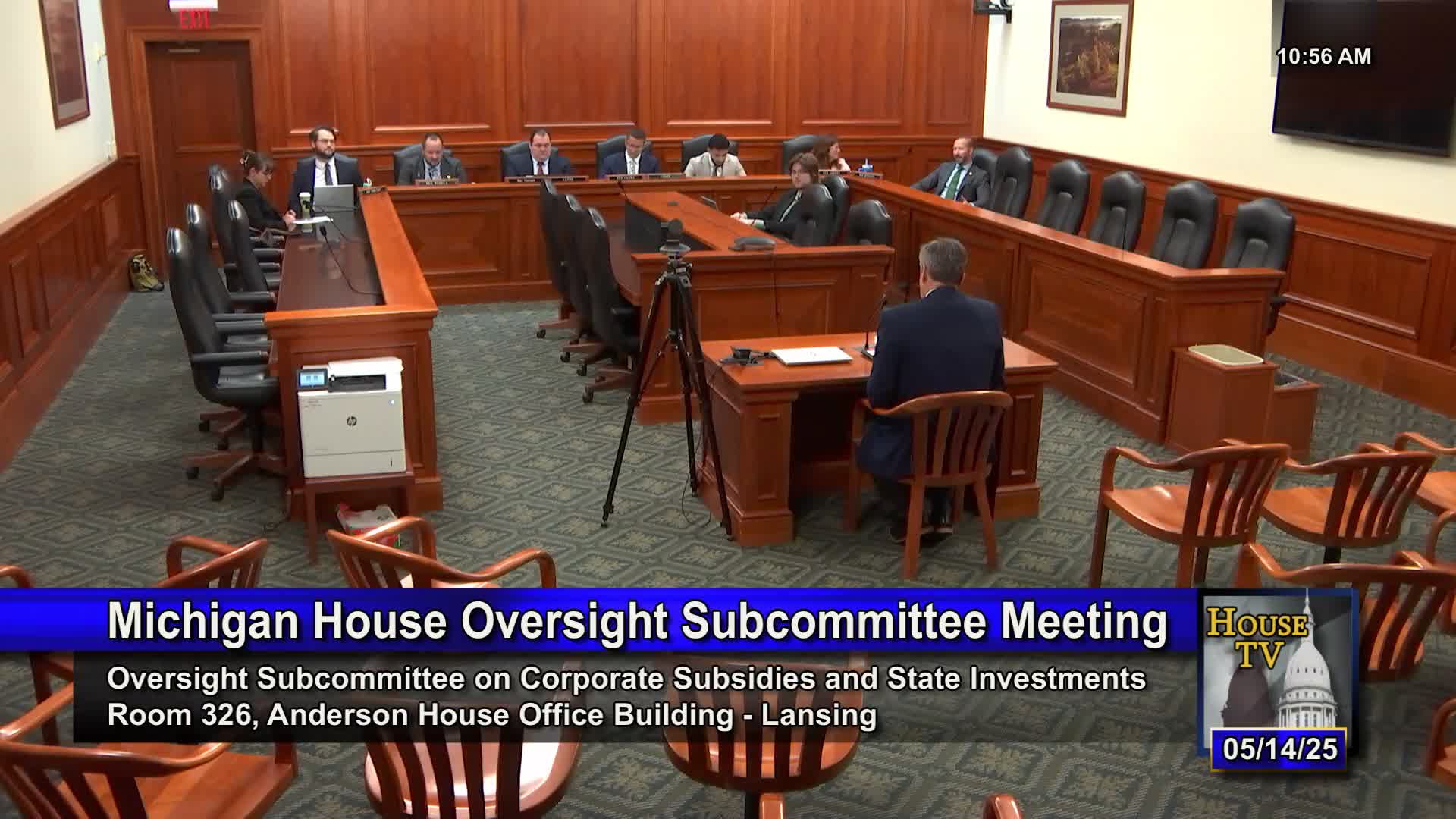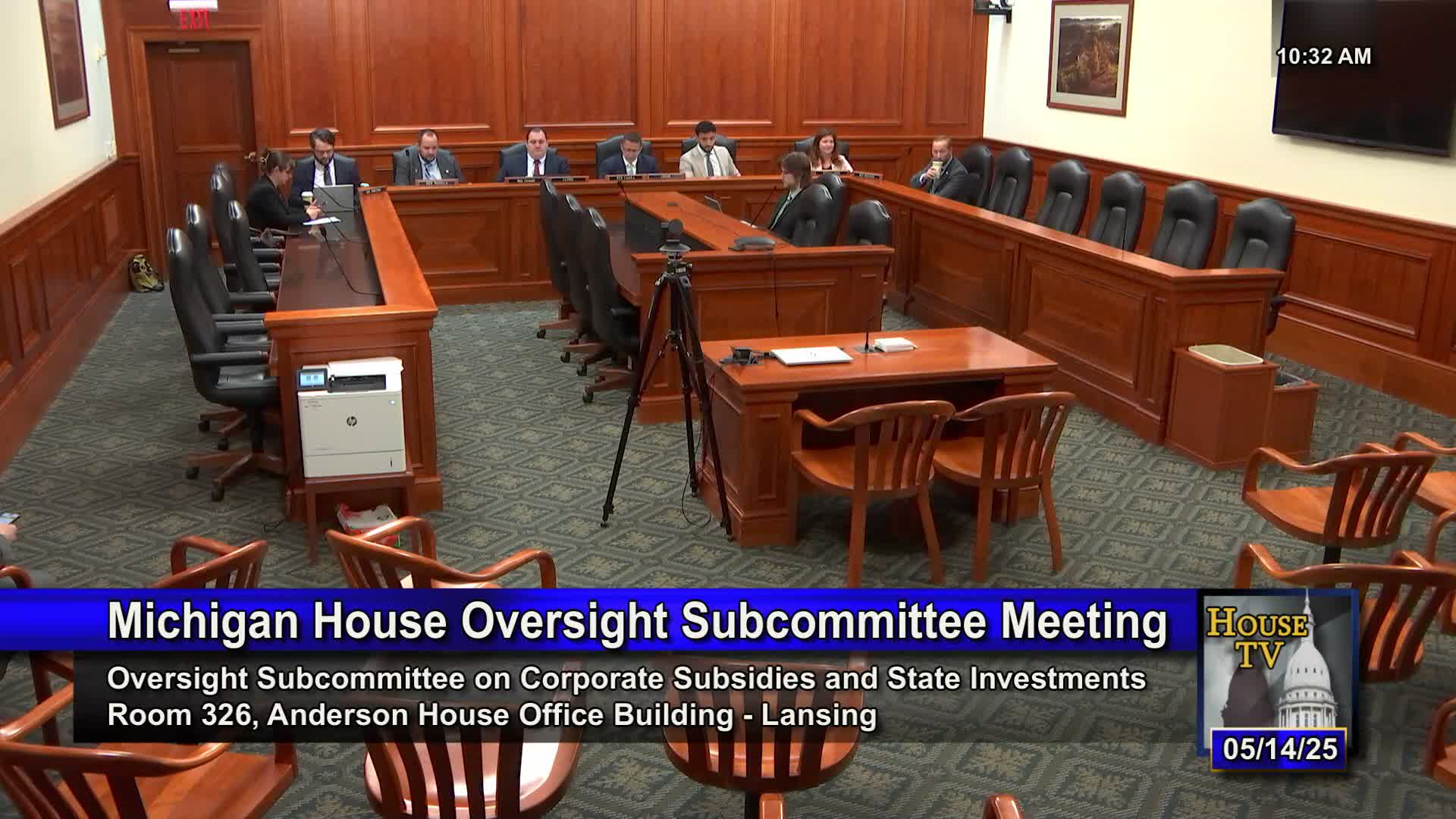Article not found
This article is no longer available. But don't worry—we've gathered other articles that discuss the same topic.

Economic‑accountability advocate tells committee subsidies like SOAR can produce poor returns and political incentives

Former ambassador warns committee that China‑linked investments like Goshen pose national‑security risks

